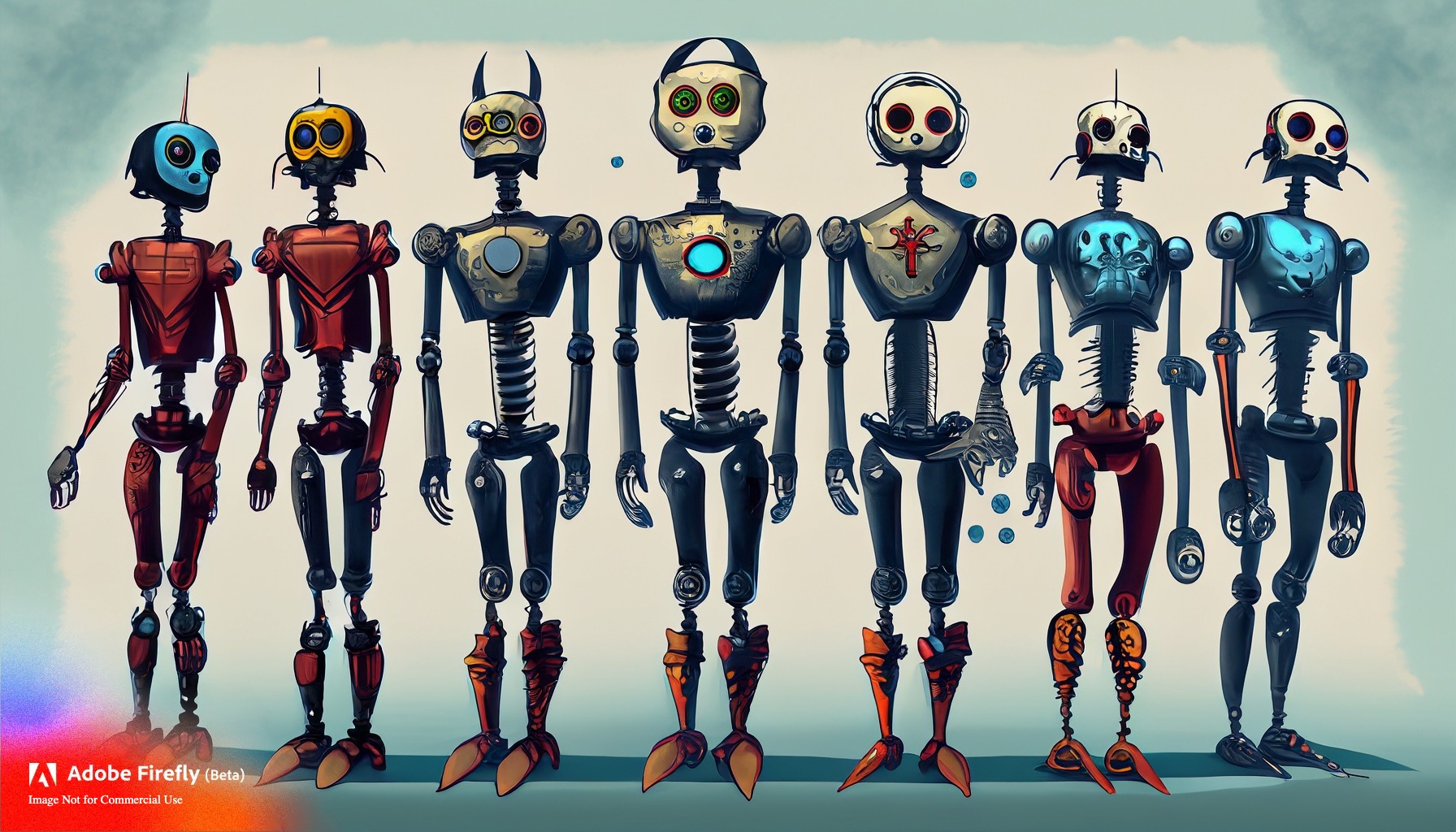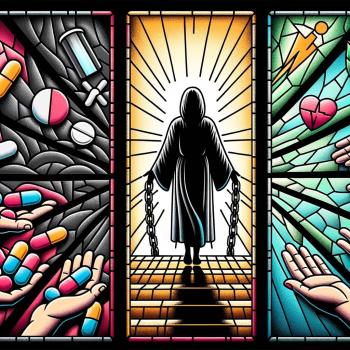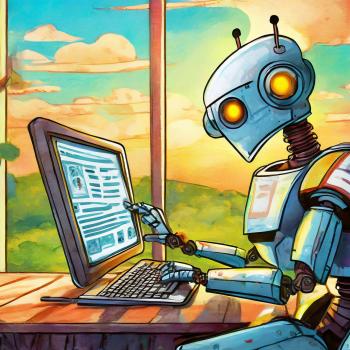
Technology and Morality
What effect has technology had on morality?
The conventional wisdom is that technology itself doesn’t come with any embedded morality. Which is to say that computers, the internet, airplanes, smartphones, et cetera, are morally neutral. Rather technology is a tool that can be turned towards good or bad ends depending on how it’s used. If that’s the case, however, how is it that technology has, in the vast majority of cases, supercharged our temptations, and made committing sin easier?
This may seem like a bold claim, but let’s consider some well known examples: the seven deadly sins of traditional Christianity:
Lust
At no point in history have we had access to more images designed to elicit lust than we do at this moment. Of course I’m talking about the spread of online pornography. Depictions of a huge variety of lustful fantasies are trivially available to anyone who desires them, while also serving to stoke the flames of that desire. One imagines that if we had some way of quantitatively measuring it, we have more lust per capita than at any point in history, all enabled through the power of technology.
Gluttony
In the past gluttony was often limited by the availability of food, or the type of food, and people did get full. Technology has weakened or completely erased all three of these limitations. We now have access to delicacies from all over the world, in a variety and in quantities our ancestors could have scarcely imagined. Beyond that the modern food industry has also created new delicacies, super-charged junk food that’s loaded with calories, but never makes us feel full. We can indulge our gluttony in ways unimaginable even by kings.
Greed
Technology has created new avenues for greed as well. This is not intended as a screed against Wall Street bankers, but that is where advancements in financial technology have been the most concentrated. Complex derivatives, high-speed trading, mergers and acquisitions of unmatched size and complexity have all been made possible by computers, and they have all proven to be very remunerative. And on those occasions when they’re not, when the bankers lose control of things, the government just bails them out, as we saw during the 2007-2008 financial crisis. All of this has translated into enormous paydays. Banker salary, which was similar to other jobs as recently as the 80s, has grown stratospherically in recent decades.
Sloth
Among men the increase in sloth has been remarkable. In 1950 the male labor force participation was 87%. Today it’s 68%. And this doesn’t fully account for the number of men who used to be active in sports or the outdoors who now just sit at home playing video games. And out of those men who are employed the vast majority work in jobs that are far less physically demanding than the jobs that were held by their fathers and grandfathers.
The numbers for women are less clear but their labor force participation has also dropped since 2000, and with the vast decrease in the number of kids and overall fertility one would imagine that they’re not as busy domestically either.
Wrath
Certainly there was more violence, and more death in the past, but while both of those flow out of wrath, it’s possible to be very angry without resorting to violence. And indeed that’s precisely what’s happening. The internet has created a space for wrath in a way that was scarcely imagined at its inception. This is to say that it’s very hard to commit violence over the internet but very easy to be angry about a wide variety of things and with a wide variety of people. The internet is full of death and rape threats. What’s worse, social media companies are encouraging this anger as a way of boosting engagement.
Envy
In the same way that the internet has allowed us to be angry with people from all over the world, we can now be envious of thousands of strangers as well. (Hopefully these are different sets of people.) In the past envy was largely restricted to one’s village or a somewhat larger, but still discreet community. Technology, in the form of the internet, has turned us into a global village. Now we can be envious of anyone anywhere. Of course we can choose not to engage, but technology has been specifically designed to get us to want to look at the influencers on the yacht, or the models on the beach. Beyond that everyone imagines they could be that model or that influencer. The latter position didn’t exist 20 years ago, but such is its envious appeal that 86% of young Americans would like to be one.
Pride
In the past pride, the sin of setting oneself above God, was the worst of all the seven deadly sins, but it’s only now that it’s reached its culmination in the ideology of transhumanism. We’ve long used technology to alter our environment, to give us more of whatever it was we desired, but transhumanists plan to make us into more of what we desire. To remake ourselves into secular gods.
Lessons and Ruminations
Why has technology pushed things in only one direction? Is the conventional wisdom wrong? Perhaps technology is not a morally neutral tool, but rather a force that’s inherently wicked?
Another possibility: we need to redefine what we mean by sin and wickedness. I used the seven deadly sins to illustrate my point, but perhaps that list is hopelessly out of date? It was set down a millennium and a half ago, and in that time our morals have shifted. As one example, an argument could be made that another name for sloth is leisure, and that leisure is a virtue, or at least a desirable luxury. In this case technology would be a more mixed bag.
Alternatively one might contend that while technology has led to a proliferation of smaller sins, it has also led to a reduction in more serious sins. We’re more lustful, but there’s less adultery. We’re more wrathful, but there’s less violence. We’re more gluttonous but we live longer. Here one is arguing that while technology does encourage some level of sin, it’s a net positive force.
This is a compelling argument but I’m not sure how much credit we can give to technology. Adultery is less common mostly because marriage is less common. We have all but defined the problem away. Violence is down because of the vastly increased power of the state. In times and places when that power has been withdrawn we end up with both a great deal of violence and a large amount of wrath. Finally, our increased lifespan comes in spite of our gluttony, not because of it.
Finally, perhaps it’s not technology that is flawed, but us. Technology has always been a power for taking what we want and giving us more of it. So perhaps the natural man wants to indulge his lust, greed, and sloth. As such technology is just giving us what we have desired all along, and more abundantly. But it’s important to remember that just because we want something doesn’t mean that it’s good.
In fact, religion has long been about mastering our desires. This includes religions other than Christianity, if anything this injunction is even stronger in religions like Buddhism, and pseudo-religions like stoicism. But modernity has made this mastery doubly difficult. We are told that our desires should be celebrated and emphasized, while at the same time technology has made such indulgences that much easier to realize.
All of this makes the practice of and attention to individual mastery that much more important. And an area where we need all the help we can get. As this is the entire point of religion — earthly and supernatural assistance in becoming better people. Religion has become far more important, at a time when society treats it with less importance than at any time in history.
It’s out of fashion to worry about societal wickedness, or really any wickedness. And none of this is to say that technology has not provided numerous benefits. Also, it’s entirely possible that using a list from the sixth century AD doesn’t really reflect the kind of things we should be worried about today. Nevertheless I find it interesting how often technology makes us more likely to sin, not less likely. Perhaps, that should worry us.
And perhaps, rather than being an outdated relic of past foolishness, as so many people believe, religion is now more important than ever.
To listen to this post click here.












